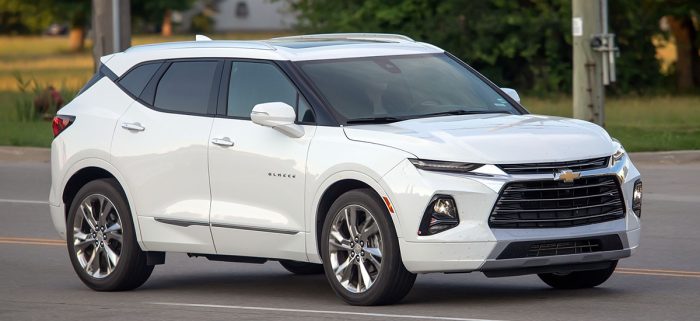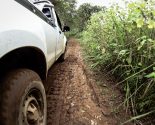Now Reading: Toyota Answers Customer Questions About The Solution For Sticking Accelerator Pedals
-
01
Toyota Answers Customer Questions About The Solution For Sticking Accelerator Pedals
Toyota Answers Customer Questions About The Solution For Sticking Accelerator Pedals
1. What is the solution Toyota announced to fix sticking accelerator pedals?
Toyota’s engineers have developed and rigorously tested a solution that is both effective and simple. A precision-cut steel reinforcement bar will be installed into the accelerator pedal assembly, thereby eliminating the excess friction that has caused pedals to stick in rare instances.
2. What is the problem that could cause accelerators to stick and led to the recall?
The issue involves a friction device in the pedal designed to provide the proper “feel” by adding resistance and making the pedal steady and stable.
This friction device includes a “shoe” that rubs against an adjoining surface during normal pedal operation. Due to the materials used, wear and environmental conditions, these surfaces may, over time, begin to stick and release instead of operating smoothly. In some cases, friction could increase to a point that the pedal is slow to return to the idle position or, in rare cases, the pedal sticks, leaving the throttle partially open.
3. How does a steel reinforcement bar solve this problem?
The steel reinforcement bar will reduce the surface tension between the friction shoe and the adjoining surface. With this reinforcement in place, the excess friction that can cause the pedal to stick is eliminated.
4. How does Toyota know that this solution will be effective?
We have confirmed the effectiveness of the newly reinforced pedals through rigorous testing on pedal assemblies that had previously shown a tendency to stick. Nothing is more important to Toyota than the safety and satisfaction of our customers, and we have high confidence in our solution for fixing our customers’ vehicles.
5. When can I get my vehicle fixed?
We will begin contacting customers to let them know when to bring in their vehicles for the fix, and some of them will be notified as early as this week.
At Toyota, our highest priority has been to quickly and effectively address the needs of owners of affected vehicles. Parts to reinforce the pedals are already being shipped for use by dealers, and many Toyota dealers will work extended hours to complete the recall campaign as quickly and conveniently as possible — some even staying open 24 hours a day.
6. How long will it take for a dealer to repair my automobile?
The actual repair involves about 30 minutes’ work.
7. Is the repair covered by warranty? Will drivers have to pay any money out of pocket for this work?
Toyota will cover all repair costs associated with this work.
8. Does the reinforced pedal feel any different?
Drivers should not notice any change in the feel of the pedal.
9. Is my car safe to drive if it has not yet received this solution?
To be clear, the condition is rare and generally does not occur suddenly. It can occur when the pedal mechanism becomes worn and, in certain conditions, the accelerator pedal may become harder to depress, slower to return or, in the worst case, stuck in a partially depressed position.
Customers who experience an accelerator pedal that is hard to depress, slow to return or is unsmooth during operation should drive the vehicle to a safe location, shut off the engine and contact a Toyota dealer contacted for assistance
In the event that a driver experiences an accelerator pedal that sticks in a partial open throttle position or returns slowly to idle position, the vehicle can be controlled with firm and steady application of the brakes. The brakes should not be pumped repeatedly because it could deplete vacuum assist, requiring stronger brake pedal pressure. The vehicle should be driven to the nearest safe location, the engine shut off and a Toyota dealer contacted for assistance.
10. What if my vehicle is also affected by the floor mat recall? Which will be addressed first?
We are working to coordinate the pedal entrapment and the sticking pedal recalls to minimize the number of customers who will have to have two service visits.
11. What do I do if I experience a sticking accelerator pedal before my car receives the remedy? Should I bring my car to a dealer?
Customers who experience an accelerator pedal that is hard to depress, slow to return or is unsmooth during operation should drive the vehicle to a safe location, shut off the engine and contact a Toyota dealer contacted for assistance.
Otherwise, no action is required at this time unless you feel you are experiencing this condition. We will begin contacting customers to let them know when to bring in their vehicles for the fix, and some of them will be notified as early as this week.
12. Can I return my vehicle to Toyota if I purchased it in the five-day period between when the recall was announced and Toyota stopped the sale on my vehicle? What are my options?
Toyota will work with customers who have concerns about their new vehicles on a case-by-case basis.
13. Which models are affected by the sticky accelerator pedal recall/stop sale?
Toyota’s accelerator pedal recall and suspension of sales is confined to the following Toyota Division vehicles:
* Certain 2009-2010 RAV4,
* Certain 2009-2010 Corolla,
* 2009-2010 Matrix,
* 2005-2010 Avalon,
* Certain 2007-2010 Camry,
* Certain 2010 Highlander,
* 2007-2010 Tundra,
* 2008-2010 Sequoia
Highlander hybrids and Camry hybrids are not affected by this action and will remain for sale.
Further, Camry, RAV 4, Corolla and Highlander vehicles with VINs that begin with “J” are not affected.
14. What is a “VIN” and how do I find it on my automobile?
A Vehicle Identification Number (VIN) is a 17-character sequence of numbers and letters that is used by the automobile industry to uniquely identify motor vehicles. It can be viewed through the windshield on the driver’s side at the front of the dashboard.
In addition, the VIN number is also located on a sticker located the driver’s side pillar, with the tire inflation information and on the vehicle’s registration.
15. Why are mechanically similar Lexus and Scion vehicles not affected by this recall?
The recall affected pedal is confined to one of Toyota’s suppliers. That supplier’s pedals are not used on Lexus and Scion vehicles.
Stay Informed With the Latest & Most Important News
Previous Post
Next Post
-
![2026 Toyota Hilux EV: A Powerful Truck with Silent Torque]() 012026 Toyota Hilux EV: A Powerful Truck with Silent Torque
012026 Toyota Hilux EV: A Powerful Truck with Silent Torque -
![2027 Mercedes-Benz S-Class Debuts with V8 Engine [Photo Gallery]]() 022027 Mercedes-Benz S-Class Debuts with V8 Engine [Photo Gallery]
022027 Mercedes-Benz S-Class Debuts with V8 Engine [Photo Gallery] -
![The Financial Benefits of Corporate Fuel Cards for Fleet Management]() 03The Financial Benefits of Corporate Fuel Cards for Fleet Management
03The Financial Benefits of Corporate Fuel Cards for Fleet Management -
![What Are the Most Reliable Jaguar F‑Pace Parts to Maintain SUV Safety and Comfort?]() 04What Are the Most Reliable Jaguar F‑Pace Parts to Maintain SUV Safety and Comfort?
04What Are the Most Reliable Jaguar F‑Pace Parts to Maintain SUV Safety and Comfort? -
![Performance Toyota Hilux Clutch Kits: Are They Worth the Investment?]() 05Performance Toyota Hilux Clutch Kits: Are They Worth the Investment?
05Performance Toyota Hilux Clutch Kits: Are They Worth the Investment? -
![What Is the Cheapest Ford Truck? A Guide to Affordable Ford Pickup Options]() 06What Is the Cheapest Ford Truck? A Guide to Affordable Ford Pickup Options
06What Is the Cheapest Ford Truck? A Guide to Affordable Ford Pickup Options -
![Spy Shots: 2027 Mitsubishi Pajero Spotted in Testing Ahead of Possible U.S. Return]() 07Spy Shots: 2027 Mitsubishi Pajero Spotted in Testing Ahead of Possible U.S. Return
07Spy Shots: 2027 Mitsubishi Pajero Spotted in Testing Ahead of Possible U.S. Return

![2027 Mercedes-Benz S-Class Debuts with V8 Engine [Photo Gallery]](https://speedlux.com/wp-content/uploads/2026/01/2027-Mercedes-Benz-S-Class-33-700x394.jpg)


















































